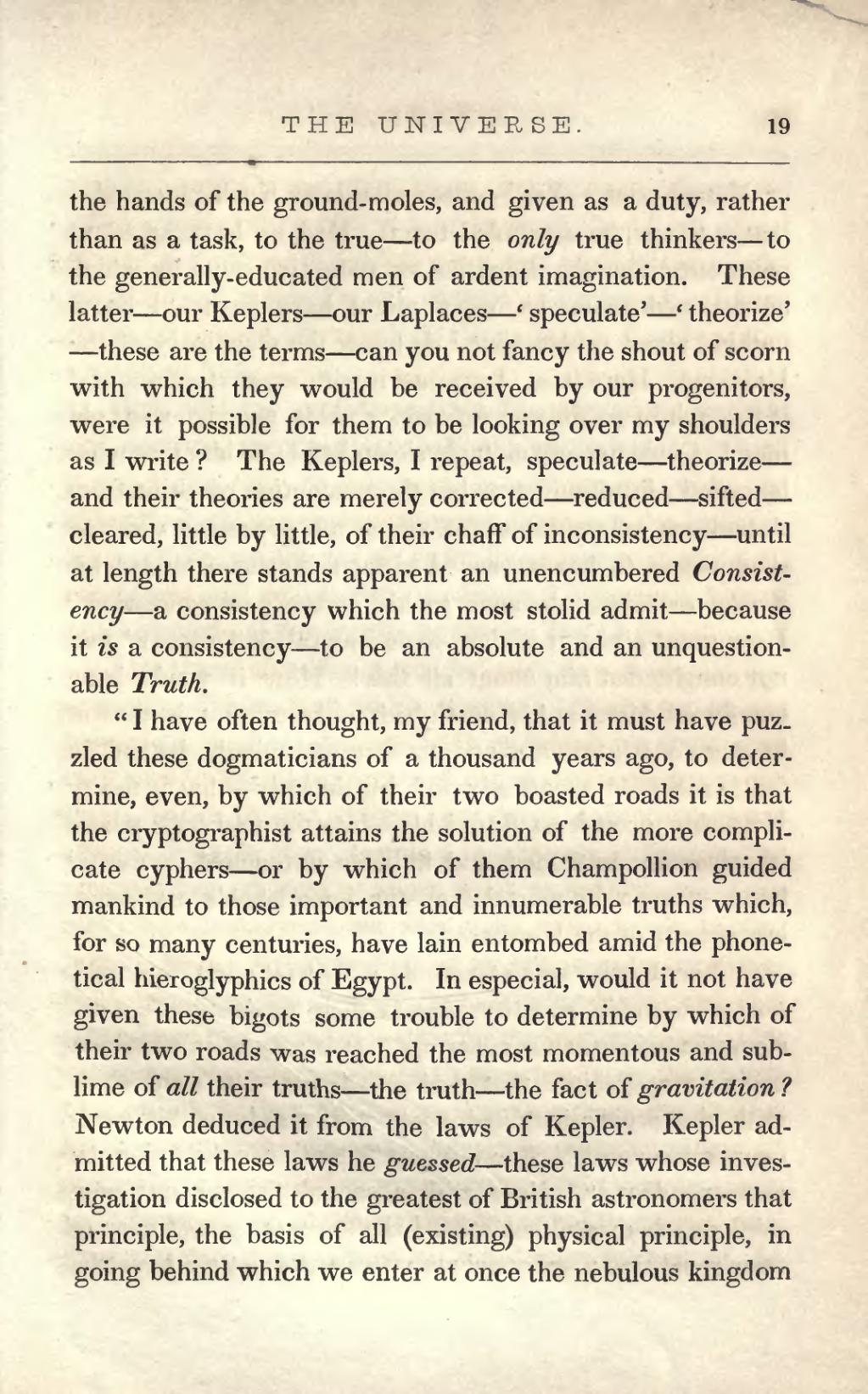the hands of the ground-moles, and given as a duty, rather than as a task, to the true—to the only true thinkers—to the generally-educated men of ardent imagination. These latter—our Keplers—our Laplaces—'speculate'—'theorize'—these are the terms—can you not fancy the shout of scorn with which they would be received by our progenitors, were it possible for them to be looking over my shoulders as I write? The Keplers, I repeat, speculate—theorize—and their theories are merely corrected—reduced—sifted—cleared, little by little, of their chaff of inconsistency—until at length there stands apparent an unencumbered Consistency—a consistency which the most stolid admit—because it is a consistency—to be an absolute and an unquestionable Truth.
"I have often thought, my friend, that it must have puzzled these dogmaticians of a thousand years ago, to determine, even, by which of their two boasted roads it is that the cryptographist attains the solution of the more complicate cyphers—or by which of them Champollion guided mankind to those important and innumerable truths which, for so many centuries, have lain entombed amid the phonetical hieroglyphics of Egypt. In especial, would it not have given these bigots some trouble to determine by which of their two roads was reached the most momentous and sublime of all their truths—the truth—the fact of gravitation? Newton deduced it from the laws of Kepler. Kepler admitted that these laws he guessed—these laws whose investigation disclosed to the greatest of British astronomers that principle, the basis of all (existing) physical principle, in going behind which we enter at once the nebulous kingdom

